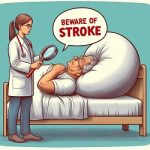Sleep is the most fundamental biological process in evolution. About one-third of a person’s life is spent sleeping.
According to relevant surveys, the average sleep duration for Chinese residents is 6.75 hours, with young people, especially those born after 2000, being the largest group of night owls. How can one sleep well and deeply? Are the various popular smart sleep aid devices really effective? Journalists have interviewed experts on this matter.
Room for Improvement in Sleep Quality
“The feeling of lying in bed unable to sleep is like ‘flipping pancakes,’ the long night feels really agonizing.”
Yao Yu, a 25-year-old girl from Henan, has intermittently struggled with difficulty falling asleep for four years. There are many others like her who experience poor sleep. The “2024 Chinese Resident Sleep Health White Paper” released by the Chinese Sleep Research Association shows that the average number of awakenings per night for surveyed residents is 1.4, with an average sleep duration of 6.75 hours. However, the “Healthy China Action (2019-2030)” advocates that adults should sleep for 7-8 hours per day.
According to the “China Sleep Research Report 2024,” the sleep index for Chinese residents in 2023 was 62.61, the lowest in nearly three years. At the same time, survey participants reported poorer subjective sleep quality, more severe sleep procrastination, and increased use of sleep aids.
Why has sleep quality declined? Wang Junxiu, Director of the Center for Social Psychology at the Institute of Sociology, Chinese Academy of Social Sciences, believes that reliance on the internet and smartphones is one of the main reasons.
Relevant data shows that digitization to some extent affects residents’ sleep: in terms of occupation, the proportion of occupational groups involved in the internet to varying degrees who sleep an average of 8 hours or more per night is less than 50%; in terms of age, 56% of college students use their phones for more than 8 hours per day, and 52% go to bed after midnight.
“With the prevalence of electronic devices such as computers and smartphones, people are more likely to be exposed to stimulating light sources such as blue light before sleep, disrupting their biological clocks; at the same time, excessive indulgence in electronic devices can lead to psychological dependence, which can also cause difficulty falling asleep or sleep rhythm problems,” said Lu Lin, academician of the Chinese Academy of Sciences and director of the Sixth People’s Hospital of Peking University, told reporters.
In addition to bad habits like internet addiction, emotions and stress are also “roadblocks” to sleep.
“When I first experienced insomnia, it was during the period of intense pressure preparing for the postgraduate entrance exam, and it gradually worsened to the point where I couldn’t even tolerate the sound of the air conditioner running or my roommate tossing and turning at night,” Yao Yu recalled, noting that her difficulty falling asleep only eased after she passed the exam and the pressure decreased.
“Clinically, it’s found that more than half of patients may have sleep disorders triggered by psychological factors,” said Tang Kangmin, a physician at the Sleep Medicine Center of the Longhua Hospital affiliated with Shanghai University of Traditional Chinese Medicine, explaining that aside from genetic and other congenital factors, factors such as stress and psychological anxiety can also cause insomnia.
What to do if you can’t sleep well? Increasingly, people are seeking professional help.
Ms. Wang from Jiangsu, who has been experiencing vivid dreams and easy awakenings since entering menopause, plans to seek treatment at the hospital. However, she’s a bit perplexed when it comes to making an appointment. “Some say to see a neurologist, some say an endocrinologist, some say a respiratory specialist. Only a few hospitals have separate sleep departments.”
“Inconvenience” Hides Business Opportunities
Today, sleepless nights have given birth to the vast blue ocean of the “sleep economy.”
Intelligent mattresses, sleep monitors, sleep-inducing aromatherapy, sleep-inducing music, sleep monitoring apps… all kinds of sleep aid products abound. Data shows that in 2023, the turnover of intelligent electric beds and intelligent mattresses increased by 125% and 82% respectively compared to the previous year; on music app “NetEase Cloud,” the most popular sleep-inducing music playlist has over 300,000 collections; on the short video platform “Bilibili,” a certain sleep aid product review video has garnered over a million views.
With the trend, more and more companies are joining the “gold rush.” According to statistics, from 2016 to 2020, the overall scale of China’s sleep economy has grown from over 260 billion yuan to over 370 billion yuan; data from Tianyancha shows that there are currently more than 9,000 sleep-related enterprises in China, with 37.3% of them established within 1-5 years.
Can these products labeled as “sleep aids” really deliver a “good night’s sleep”?
“Take melatonin for example, it can indeed regulate the sleep cycle, but it may be more suitable for people whose melatonin secretion is disrupted due to long-term staying up late, or for those with jet lag.” Lu Lin stated that the efficacy of sleep aid products often varies from person to person.
For example, for individuals experiencing insomnia due to stress or anxiety, melatonin may not be very effective. At the same time, most sleep monitors on the market mainly work on the principle of microcurrent stimulation, and their effectiveness is still unclear. Special populations such as pregnant women and those with pacemakers should also avoid using such products.
“After waking up, habitually checking last night’s sleep data has become my ‘morning ritual’.” Some consumers stated that they have purchased wearable sleep monitoring devices like smart bracelets, which can play music, practice meditation, and also collect sleep data such as breathing, heart rate, and blood oxygen levels.
Lu Lin explained that wearable sleep monitoring devices can assist in understanding sleep patterns and provide personalized sleep advice, but compared to medical polysomnography devices, their technology and algorithms still have inaccuracies and cannot be considered as a “gold standard.”
“We often see a phenomenon in clinical practice, where wearing a bracelet doesn’t necessarily improve one’s sleep, but rather, even though they slept well, upon seeing the data the next day, they might find that only 3% of their sleep was deep, which can lead to anxiety and worsen sleep quality.” Han Fang, director of the Sleep Research Center at Peking University, believes that one should not overly rely on the indicators and parameters of sleep aid products. As long as one wakes up feeling refreshed the next morning, that is considered good sleep.
Browsing through e-commerce platforms, it’s evident that many merchants tout slogans like “fall asleep in one second” or “challenge to fall asleep within 30 minutes” regarding the efficacy of sleep aid products. Industry insiders caution that there’s no “one-size-fits-all” solution, and the more extravagant the advertising claims, the higher the likelihood of “intelligence tax.”
The “Insight Report on the Development and Consumer Trends of Sleep Aid Products” released by Ipsos Consulting points out that the current development of China’s sleep economy industry is relatively dispersed, involving various types of enterprises such as home furnishings, food, technology, and the Internet. While ensuring the high quality and efficiency of products, businesses should also reject exaggerated marketing and inflated prices to avoid causing consumer trust crises.
According to estimates, by 2030, the overall market size of China’s sleep economy is expected to exceed one trillion yuan. Huang Zhili, chairman of the China Sleep Research Association, stated that technological innovation will be an important direction for the future development of the sleep industry. “With technological advancements, sleep products are constantly evolving. How to use new technologies such as AI to improve sleep through principles like sound, light, electricity, magnetism, vibration, and temperature regulation is something worth looking forward to.”
Having a Correct Understanding of Sleep
Developing good habits might just be the beginning of sweet dreams. Yuan Yue, a white-collar worker who used to stay up late browsing on his phone, has finally decided to make a change.
“Whenever my phone emits that faint blue light, there’s always a tug-of-war between two little figures, one black and one white, in my mind. Over time, staying up late browsing on my phone hasn’t brought me the satisfying deep sleep anymore, but rather a sense of indulgent guilt.” Yuan Yue said that due to staying up late, he started experiencing lateness, drowsiness, and distraction. Playing on the phone before bed seemed like a form of “self-management of time,” but it actually came at the expense of stealing time from the normal order of the day.
Being too busy during the day and reluctant to sleep at night is a reason for many young people’s “revengeful late-night” behavior. Experts believe that in addition to “quitting internet addiction” on their own, reducing daytime stress for workers and ensuring sufficient rest time may prevent retaliatory media use before sleep from the root.
The “Chinese Sleep Research Report 2024” points out that the working locations, hours, and methods of Internet digital workers are relatively flexible, and the boundary between work and life is unclear, making their sleep conditions more likely to be affected by work. Lü Guoquan, a member of the National Committee of the Chinese People’s Political Consultative Conference and director of the Office of the All-China Federation of Trade Unions, suggests introducing the concept of “offline rest rights,” allowing workers to refuse to be contacted or handle work through digital tools outside of working hours to ensure sufficient rest.
To sleep well, not only is it necessary to take “correct actions,” but also to have a “correct understanding” of sleep.
“Imagine insomnia as a pillar, and the anxiety and worry caused by insomnia as a rope, which is tied around your neck, and what you’re doing is just circling around the pillar of insomnia.” On the social media platform Douban, a long-term insomniac shared that sometimes the fear of insomnia is even scarier than insomnia itself.
“As sleep doctors, we often don’t emphasize or exaggerate the harm of insomnia too much, as this can lead patients into a misconception, causing them to focus too much on insomnia, which can actually worsen its severity.” Wang Yang, chief physician of the Neurology Department at the Second People’s Hospital of Shenzhen, explains that incorrect sleep cognition can lead to acute insomnia escalating into chronic insomnia. Therefore, one should dispel misconceptions about the causes of insomnia, avoid overthinking, and set realistic sleep expectations.
“In the past, many people adopted an attitude of avoidance towards sleep problems. It’s gratifying that with the popularization of school, community psychological counseling rooms, and the establishment of hospital sleep clinics, more and more people are beginning to recognize the importance of sleep.” Lu Lin suggests that patients with severe sleep problems should seek medical attention promptly, while also cultivating good habits in daily life, including relaxation before bed, scientifically balanced diet, and moderate exercise.
“Now I’ve started running, sunbathing, and doing some meditation exercises to calm my mind.” Yao Yu said that after regaining control of her life order, she finds it


